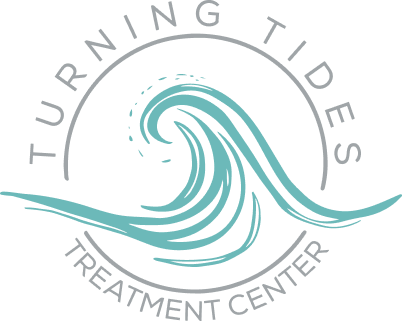Delving into Adderall’s Roots
Tracing the Drug’s Origins
Adderall’s story begins with a pressing need in the medical community: how to effectively manage ADHD and narcolepsy. Introduced as a combination of amphetamine and dextroamphetamine, it aimed to stimulate the central nervous system, balancing neurotransmitters in the process.
Its Role in Modern Medicine
Beyond its primary role in ADHD treatment, Adderall’s effects, like improved concentration and alertness, found it being prescribed off-label for conditions like treatment-resistant depression, making it a versatile tool in the medical arsenal.
Media’s Role in Popularizing Adderall
But as with many things, media played its part in Adderall’s rise. Portrayed as a wonder drug in movies, series, and songs, it wasn’t long before Adderall’s name echoed not just in medical circles, but also on college campuses and workplaces.
Why Adderall Commands Such a Strong Appeal
The Science Behind its Effects
The dopamine increase caused by Adderall is pivotal. While it rectifies the lack of focus in ADHD patients, in others, it can spark feelings synonymous with hard stimulants – intense pleasure, heightened alertness, and a surge of energy.
Enhancing Performance: The Good, The Bad, and The Ugly
For many, the allure of enhanced cognitive abilities, longer work hours, and heightened focus becomes irresistible. But this boon can quickly devolve into a bane. Regular use can disrupt the brain’s natural balance, leading to adverse effects.
The Snowball Effect: Casual Use to Dependency
What starts as an occasional boost can soon spiral into a daily necessity. The frequent dopamine highs condition the brain, leading it to expect and demand more of the drug. This is where dependency takes root.
Peeling Back the Layers: Impacts of Adderall Addiction
Psychological and Emotional Ramifications
The mind suffers considerably. Chronic users often report heightened anxiety levels, unpredictable mood swings, paranoia, and even depressive episodes. The emotional toll is immense, with feelings of hopelessness and despair common among addicts.
Physical Consequences: A Closer Inspection
Consistent Adderall misuse strains the body. An overworked cardiovascular system, disrupted sleep cycles, weight loss due to appetite suppression, and even more grave concerns like seizures become tangible threats.
Beyond the Individual: The Societal and Economic Aftermath
On a broader scale, Adderall addiction impacts society. Relationships strain, academic and professional trajectories derail, and the overall productivity of communities diminishes. The economic ramifications too, from healthcare costs to loss of employment, can’t be ignored.
Spotlight on Recovery: Turning Tides’ Approach to Treatment
A Multi-pronged Treatment Regimen
At Turning Tides, recovery isn’t just detoxing. It’s a comprehensive approach, embracing therapy, counseling, education, and community support. Their tailored programs aim at holistic healing, treating not just addiction but the root causes too.
Real-life Tales of Overcoming Addiction
The corridors of Turning Tides echo with inspiring tales – individuals who, from the clutches of Adderall addiction, turned their lives around. These stories serve as testimonials to the center’s efficacy and as hope-filled beacons for others.
Lifelong Sobriety: The Journey Post-Rehab
Post-rehabilitation, the journey morphs into one of vigilance. Staying sober is a continuous process, and Turning Tides ensures its patients are well-equipped to walk this path, with regular check-ins, therapy sessions, and a community always ready to lend a listening ear.
Parting Thoughts
Adderall, a beacon of hope for some, can be a storm cloud for others. Its potential for addiction underscores the importance of education, awareness, and support. For those entwined in Adderall’s addictive embrace, help is out there, and with dedication, a return to sobriety is more than just a possibility is a tangible reality.
Continuing the Road to Recovery
One must understand that rehabilitation is not a sign of defeat but rather an emblem of courage. It’s an acknowledgment of one’s challenges and a step towards reclaiming control over one’s life.
The Role of Support Systems
While the individual’s willpower is crucial, the role of a robust support system – be it family, friends, or a community like Turning Tides – cannot be underestimated. This collective force provides a safety net, helping the recovering individual navigate through triggers, moments of doubt, and potential relapses.
Stigma and Misunderstanding: The Silent Battles
Sadly, societal perception remains a hurdle for many. The stigma surrounding drug rehabilitation often deters individuals from seeking timely help. The narrative needs to change, with society focusing on empathy, understanding, and support rather than judgment.
The Power of Knowledge
Knowledge, as they say, is power. Educating oneself about Adderall – its benefits and potential pitfalls – is pivotal. When prescribed for legitimate reasons, it can be transformative. However, understanding the risks associated with misuse can be the first line of defense against potential addiction.
Looking Ahead: A Hopeful Horizon
The journey of recovery, filled with its fair share of hurdles, also brims with moments of triumph, self-discovery, and rejuvenation. Places like Turning Tides not only offer a fresh start but also equip individuals with the tools, knowledge, and support to embark on a new chapter, one where the shadows of addiction no longer loom large.
In a world where quick fixes are often sought, it’s crucial to remember the age-old adage: “Slow and steady wins the race.” True recovery might not be instantaneous, but with patience, persistence, and the right support, it is undeniably achievable.
